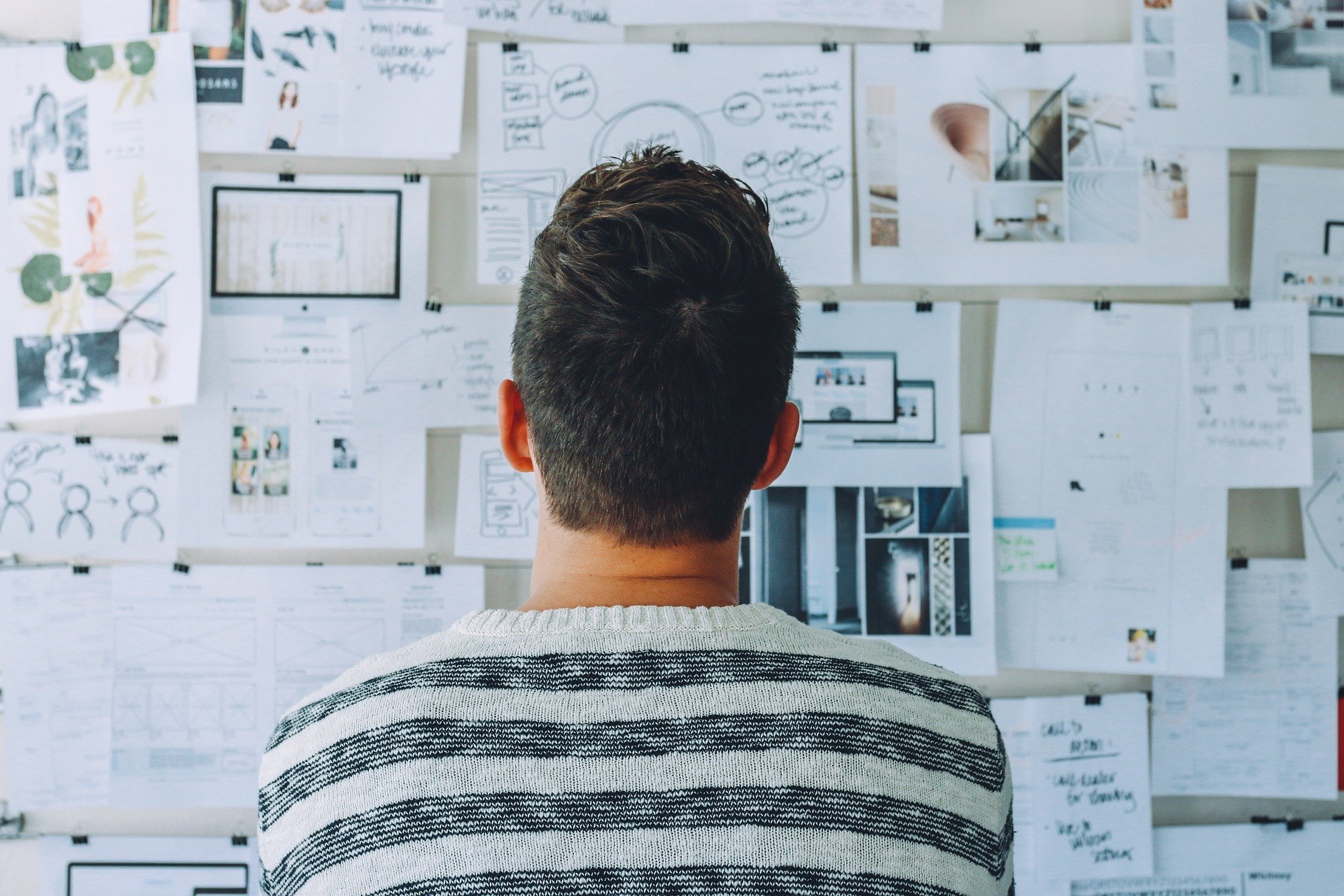With the country slowly easing out of strict measures and people allowed to go back to a bit of normality, weddings, functions, and events are picking up like a rolling ball of fire. With the event and entertainment industry trying to catch up on a years’ worth of canceled events plus adding brand new events to their list, mental health for event planners may deteriorate quickly.
A friend of mine is a florist and she literally told me she was working for a wedding company as a florist on Saturday last week and they had 16 weddings running just that weekend!
I, myself, worked in the events industry not so long ago, and even back then we were working insane hours of about 15–18-hour days when there were some big events. Thus, I can only imagine how crazy it must be for event and wedding planners now that they must play catch-up too.
Luckily, I have moved away from events and found a new career in mental health. So, coming from a background of working in events, I am writing this article aimed at those wedding and event planners that may now struggle to cope with this new ‘wildfire’ hitting them with a bang!
First off, most of what I will mention are things you probably already know, so this might just be a little reminder for you to really check in with yourself and do some self-care. Other things may be completely new to you.
I completely understand that you’re already lacking time and lacking sleep, so I will keep my suggestions short, quick, and easy to do.
1. 4-7-8 Breathing Technique
This is my favourite technique in the world and only takes 1 minute to do. It was specifically created to help people who are struggling with sleep issues, but they soon realised it is brilliant for people feeling anxious, stressed, angry or overwhelmed.
How to do it:
– Take a deep breath in through your nose for the mental count of 4.
– Place the tip of your tongue on the tissue behind your front teeth.
– Hold your breath for the mental count of 7.
– Breathe out through your mouth, keeping your tongue in place. As you breathe out,
make a swooshing sound.
– Repeat 3-5 times.
Do this whenever you feel unfocused, unable to think, stressed, overwhelmed, angry, or losing your cool, or even when you are going to bed.
2. Take a break from Tech
Step away from your phone, the news, social media, TV, the radio, etc. Turn it all off. Everything you see, hear, listen to is usually not good or happy news. It’s another death or another spike another lockdown, the vaccine, the numbers, the sadness. It is information overload and you are already getting enough of that at work. All of this will just make you anxious and you can’t afford that right now.
So just switch off from time to time and take a quiet moment to yourself.
3. Don’t neglect your health
When I was working in events and running around like a headless chicken, the first 2 things that happened was that I was eating junk or nothing at all, and to fill my stomach I smoked and drank a lot more.
Make sure you pack yourself some healthy, nutritious snacks that you can easily reach in between running errands. Also ensure you set time aside, where possible, to sit down and have a good meal. Even if just for 10 minutes.
If you can, take some soup to work or prep your meals, or cook in bulk so you have healthy food with you and make sure you get in some healthy veggies!
Watch what you drink and smoke too. We can easily fall into unhealthy habits which can curb our hunger but makes us more fatigued, crave sugar, and cause sleeplessness.
4. Focus on the positives
When we are feeling stressed and overwhelmed it is easy to ‘drop your guard’ and just focus on all the negative things happening around us.
We can easily fall into unhelpful thinking habits, such as:
– Catastrophizing (the worst thing is going to happen), or
– Mind Reading (predicting what others are going to think or say – usually about us). – We might be Jumping to Conclusions too quickly,
– Labelling others (there are so stupid or clumsy) or
– Shoulds and Musts (which just puts extra pressure on ourselves and sets up
unrealistic expectations.
Remember – there is good news out there. And what we tend to do is to instantly believe and give credibility to bad news, but when good news comes, we explain it away. So immediately we discount the positive. We had a chance to feel good during this stressful time and we stomped it away. So don’t do that.
5. Remind yourself to Recharge
Think about the battery icon on your mobile phone. Once it is fully charged, it will show at a satisfying 100%. As the day goes by, your battery will drain. On a normal day, perhaps by lunchtime, it is already at 40% and by the time you go home, it is nearly ready to recharge.
However, there are heavy usage days as well. Days where you need to use your phone a lot for all sorts of things and by lunchtime, it’s already showing 7% and you are forced to stop what you are doing to go and charge your phone for an hour or so.
Perhaps you find you need to charge it again by 4 pm.
On heavy usage days – you will have to deliberately recharge your phone numerous times.
Now, it is not about being strong, pushing through, manning up, or being tough! It is about realising that on heavy days, you will have to deliberately recharge and take some time out. (Even if it is just for 10 minutes)
6. Check in with yourself
Make a point to regularly focus on how you are doing.
You can use this simple diagram to guide you.
🤍 – Everything is great in your life! There is nothing to worry about.
💛 – You are a bit frustrated/disappointed, but you can be easily cheered up.
💚 – Things are bothering you, but you are coming. You might be overtired or hungry. The emotional equivalent of a headache.
🧡 – Today is a bad day (or a few bad days) You still have the skills to get through it though but be gentle with yourself and use self-care strategies.
❤ – Your mental health is starting to impact your everyday life. Easy things are becoming difficult. You should talk to a professional like a doctor or a therapist.
💜 – You can’t do things the way you usually do things due to your mental health. Impulsive and compulsive thoughts may be hard to cope with.
💙 – You are avoiding things that make you more distressed, but that would actually just make things worse. You should definitely seek help. This is serious.
🤎 – You can’t hide your struggle anymore. You may have issues sleeping, eating, having fun, socialising, and work/study. Your mental health is affecting almost all parts of your life.
🖤 – You’re at a critical point. You aren’t functioning anymore. You need urgent help. You may be a risk to yourself or others if left untreated.
💔 – The worst mental and emotional distress possible. You can no longer care for yourself. You can’t imagine things getting any worse. Contact a crisis line immediately.
7. Seek out Therapy
This whole pandemic is affecting all of us mentally in a different way. Therapy can be a good place to help you offload your stresses, talk about things that anger or frustrates you, a place where you can feel safe, or just somewhere you can go and perhaps relax like you have never relaxed before (if you go for hypnotherapy or mindfulness sessions).
It’s an outlet, a place of support and it may even help you change your mindset if you feel stuck in the past, worried about the future, or just unable to get through things.
You will have a lot on your shoulders rights now and ignoring your stress isn’t going to make things any easier for you.
Mental Health for event planners.
Bottom-line:
Try to follow these 7 tips for Mental health for Event Planners. Don’t feel like you need to keep pushing yourself … just one more day… just one more week. If you need a break, if you need to recharge, if you need to talk to someone – do it! Your mental health is more important than anything else! Remember – (touch wood it won’t happen!) but if you have a breakdown, you will be booked off work for much longer than just taking a quick break when needed.
Mental Health for event planners.


